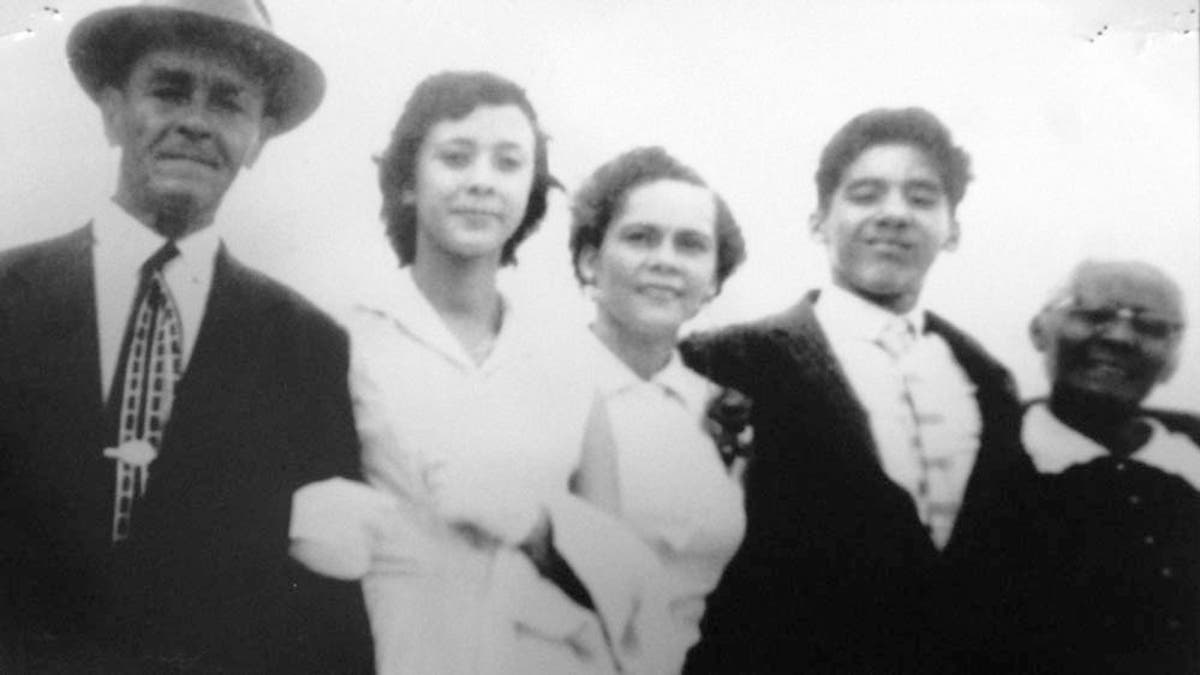
Let me tell you my family’s story, just one Hispanic family among millions. Like the overwhelming majority of immigrants, Latino or otherwise, the Rivera’s of Puerto Rico worked hard, served our country in many different ways, and made enormous efforts to assimilate, despite the obstacle of prejudice.
My dad always wanted to fit into America, his “new” country. Well, technically the country wasn't new, because U.S. citizenship had been bestowed on him and all current and future Puerto Ricans by legislation called the Jones act in 1917. The United States had been in possession of the lovely tropical island it had conquered and won from Spain for only twenty years, and Cruz Rivera was just two years old, the sixth of seventeen children born to Juan and Tomása Rivera of Bayamon, Puerto Rico.
“How could you have so many children?” I remember asking my grandmother, a woman of enormous patience and good humor who wore her snow-white hair pulled back, contrasting dramatically with her angular, chocolate-colored face made leathery by the sun. “Times were different then,” she replied in fabulous understatement, referring to their modest agrarian lifestyle in the sugarcane and coffee economy that dominated the island in the days before federal tax breaks led to the island’s industrial revolution. Back in the day, my grandfather helped manage one small plantation, and each child became another income earner, cutting and stacking cane, watched over by a slightly older sibling.
With citizenship, these new Puerto Rican Americans were free to roam and our diaspora began. Most, like my dad, came to the Big Manzana (Apple). When the then twenty-one-year-old Cruz arrived on board one of the “New York and Porto Rico Steamship Company’s” ‘banana boats in 1937, more than fifty thousand of his fellow islanders lived here in town. The number had been higher, nearly double earlier in the decade, but the Great Depression had unleashed a torrent of bitter racism toward the newcomers, who, like the immigrants of today, were thought to be stealing jobs from ‘real’ Americans.
So thousands had gone home to the island. My dad and several of his siblings were determined to stay. (My beloved Aunt Ana still lives in the same building in Co-op City in the Bronx where Supreme Court Justice Sonia Sotomayor once lived)!
My dad worked hard as a cab driver, served in the U.S. Army, and most importantly met and married my mom, Lilly Friedman of Newark, New Jersey. His response to endemic discrimination and sometimes violent backlash against the community was to align our family with the Anglo mainstream; moving us out of our Williamsburg Brooklyn semi-ghetto to the blue collar suburb of West Babylon Long Island, registering as a Republican, and aligning our family with the Anglo mainstream, our “us” to the inner-city barrio’s “them.”
His fear of being racially stereotyped and his shame at any dreadful or embarrassing act committed by any Latino is something I can never forget. As a young adult, it was what caused me to reject his cautious assimilation and adopt a flamboyant ethnic identity, growing a mustache I haven’t shaved in forty-three years; and more importantly, fiercely championing our underdog community against any real or perceived affront or insult.
As my urgent 1960’s ethnicity simmered down during a four-decade-long public career, what remains is a reflex opposition to racial and ethnic stereotyping. Right now in America, the group being singled out for the most destructive negative emotion is Hispanic immigrants, both legal—families who have been in the country for generations---and illegal---people who may have crossed over the border yesterday. All this destructive hostility is the angry manifestation of what borders on a national panic that I look forward to examining in detail on this important new website. I know ahead of time that many of my Fox News viewers hold distinctly different, no, diametrically opposing views to mine. Reasonable people can reasonably disagree. But know this: despite this conflict, I can say on behalf of our entire community that as a proud Puerto Rican, I am proud to be an American.
